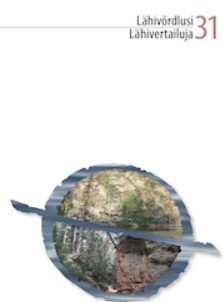Eesti ja vene õppekeelega kooliõpilaste kirjutamisoskus emakeele e-tasemetööde katsetuse tulemuste põhjal
Writing skills of Estonian and Russian language speaking school students based on the results of the mother tongue standard-determining e-tests
Author(s): Anne Uusen, Helin PuksandSubject(s): Foreign languages learning, Language acquisition, Comparative Linguistics, Finno-Ugrian studies, Eastern Slavic Languages, School education
Published by: Eesti Rakenduslingvistika Ühing (ERÜ)
Keywords: creation of written text; components of writing; digital writing skills; analytical assessment; text-based assessment; Estonian; Russian;
Summary/Abstract: The Covid-19 pandemic has significantly changed something in society and at school. Communication is increasingly taking place in a hybrid form, and therefore the ability to communicate one’s thoughts in a comprehensible way to a communication partner in writing, i.e., relevant writing skills, is becoming more and more important. Research has shown that mother tongue skills, and more specifically the ability to write in the mother tongue, provide input and help to acquire a second language and/or the language of the learner. Consequently, when preparing for the full transition to Estonian-language education, it is important to know how the writing skills of current first and second stage students of Estonian and Russian speaking basic school are similar and different. The opportunity to compare the writing skills of the students of two school types a little more precisely arose from the basis of the general results of the writing part of the e-tests tested in October 2019 in the 1st and 2nd level of basic school. The definition of the construct to be assessed was based on the definitions of several authors, which can be summarized as complicated and complex activity of creating high-quality writing, which consists of different stages. To assess writing skills, it must be established in advance how, what and for what purpose will be assessed. As in standard-determining tests it is possible to assess the result of writing or text, the assessment guide was based on a product approach and, more narrowly, on an analytical assessment model. At both school levels, there were two writing tasks in Estonian and Russian: the task of writing communication and writing the narrative text. The analysis showed that the tasks were generally reliable and measured what was expected. The reliability of the tasks of writing a narrative text was rather low in the first stage test of Estonian and in both stage tests in Russian. This shows that as many aspects as possible should be assessed at least in the narrative text. In both text creation tasks, three aspects were assessed: text creation or content, orthography, and digital writing skills, and in the written communication task, also the ability of written communication.
Journal: Lähivőrdlusi. Lähivertailuja
- Issue Year: 2021
- Issue No: 31
- Page Range: 229-251
- Page Count: 23
- Language: Estonian

